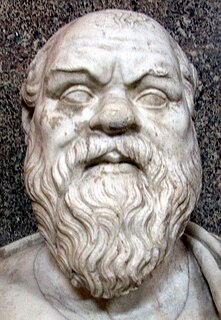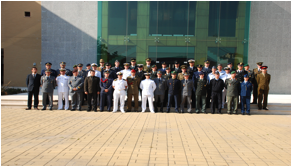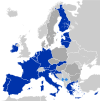This page is based on this
Wikipedia article Text is available under the
CC BY-SA 4.0 license; additional terms may apply.
Images, videos and audio are available under their respective licenses.

The SOCRATES programme was an educational initiative of the European Commission; 31 countries took part. The initial Socrates programme ran from 1994 until 31 December 1999 when it was replaced by the Socrates II programme on 24 January 2000, which ran until 2006. This, in turn, was replaced by the Lifelong Learning Programme 2007–2013.
The European Union plays a minor and mostly indirect policy role in sport, because (a) sport is normally considered to be outside the competences conferred by the member states to the European Union and (b) sport is in general organised internally, on a European continental level, or globally.

The Erasmus Programme is a European Union (EU) student exchange programme established in 1987. Erasmus+, or Erasmus Plus, is the new programme combining all the EU's current schemes for education, training, youth and sport, which was started in January 2014.

Directorate General for Communications Networks, Content and Technology or "DG Connect" is a Directorate-General of the European Commission. DG Connect is responsible for managing the Digital Agenda.
In the European Union education is the responsibility of Member States; European Union institutions play a supporting role. According to Art. 165 of the Treaty on the Functioning of the European Union, the Community
The Committee on Culture and Education (CULT) is a committee of the European Parliament.

The Joint Research Centre (JRC) is the European Commission's science and knowledge service which employs scientists to carry out research in order to provide independent scientific advice and support to EU policy.
The JRC is a Directorate-General of the European Commission under the responsibility of Tibor Navracsics, Commissioner for Education, Culture, Youth & Sport. The current Director General of the JRC is Vladimír Šucha. Its Board of Governors assists and advises the Director-General on matters relating to the role and the scientific, technical and financial management of the JRC.

The Directorate-General for Research and Innovation is a Directorate-General of the European Commission, located in Brussels, and responsible for the European Union's research and innovation policy and coordination of research and innovation activities. It is headed by Commissioner Carlos Moedas and Director-General Jean-Eric Paquet.

The Directorate-General for Agriculture and Rural Development or DG AGRI is a Directorate-General of the European Commission. The DG AGRI is responsible for the European Union policy area of agriculture and rural development. The work of the DG AGRI is closely linked with the Common Agricultural Policy (CAP).

The Directorate-General for Environment is a Directorate-General of the European Commission, responsible for the European Union policy area of the environment.

The Directorate-General for Economic and Financial Affairs is a Directorate-General of the European Commission. The DG ECFIN is located in Brussels, Belgium, and Luxembourg. Its main responsibility is to encourage the development of Economic and Monetary Union both inside and outside the European Union, by advancing economic policy coordination, conducting economic surveillance and providing policy assessment and advice.

The Directorate-General for International Cooperation and Development is one of the departments of the European Commission. It operates under the authority of the European Commissioner for International Cooperation & Development, Neven Mimica.

The Commissioner for Justice, Consumers and Gender Equality is a post in the European Commission. The current commissioner is Věra Jourová.

The Directorate-General for Migration and Home Affairs is a Directorate-General of the European Commission. The role of the body is to ensure the EU's security, to build a common EU migration and asylum policy, and to promote dialogue and cooperation with non-EU countries. Thereby, it contributes to the Area of freedom, security and justice (AFSJ).

The Military Erasmus Programme, formally the European initiative for the exchange of young officers inspired by Erasmus, is an initiative undertaken by the European Union (EU) member states aimed at developing the exchanges between armed forces of future military officers as well as their teachers and instructors during their initial education and training. Due to the fact that the initiative is implemented by the Member States on a purely voluntary basis, their autonomy with regard to military training is not compromised.
Xavier Prats Monné is the Special Advisor of Teach For All, a global non-profit organisation whose mission is to expand educational opportunity around the world, since October 2018. He previously was a high-ranking official of the European Commission, as: Director General of the Directorate-General for Health and Food Safety (2015-2018), Deputy Director General (2010–2014) and Director General (2014–2015) at the Directorate-General for Education and Culture. As Director-general for Health and Food Safety he was responsible for the promotion of public health, the assessment of national healthcare systems' performance, animal health and welfare, and the strengthening of Europe's capacity to deal with crisis situations in human health and food safety. As Director-general for Education and Culture, the main policy areas under his responsibility were: the modernisation of European education and training systems; educational mobility, including the "Erasmus" programme for students; and international relations in the field of education, culture and youth. He represents the European Commission (EC) at the European Institute for Innovation and Technology (EIT).









